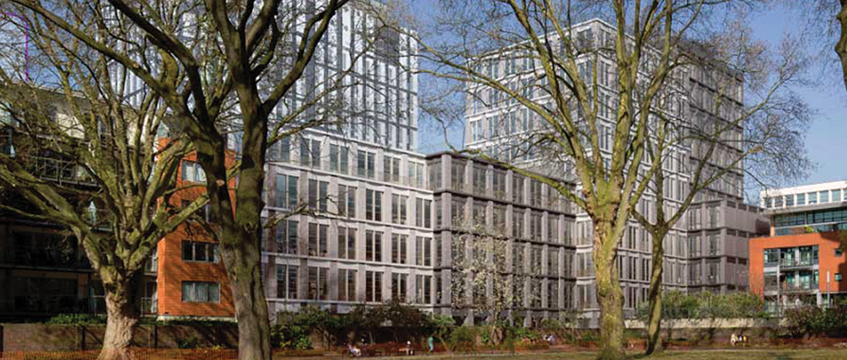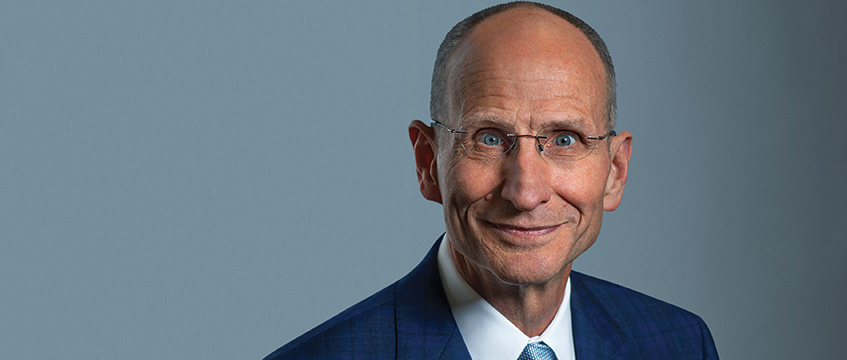Portfolio reshaping keeps Derwent steady
“Significant portfolio reshaping activities” with a focus on larger developments kept trading figures strong for Derwent London in the year ended 31 December 2021.
The group saw net property and other income increase marginally from £183m in 2020 to £187.5m last year, with gross rental income dipping by 4.3% to £194.2m as a result of lease surrenders and the sale of a number of properties.
The group offloaded some £405.1m of assets during the period, but spent £417.5m on the acquisition of eight sites, including the Lazari Baker Street joint venture and 230 Blackfriars Road, SE1, both of which it said were potential future “super-sites” where it sees the possibility for substantial uplifts in floor area.
“Significant portfolio reshaping activities” with a focus on larger developments kept trading figures strong for Derwent London in the year ended 31 December 2021.
The group saw net property and other income increase marginally from £183m in 2020 to £187.5m last year, with gross rental income dipping by 4.3% to £194.2m as a result of lease surrenders and the sale of a number of properties.
The group offloaded some £405.1m of assets during the period, but spent £417.5m on the acquisition of eight sites, including the Lazari Baker Street joint venture and 230 Blackfriars Road, SE1, both of which it said were potential future “super-sites” where it sees the possibility for substantial uplifts in floor area.
The group said it had worked on reshaping its portfolio over the period and expected to retain more of its larger recent developments where it could see good growth, but said it may look to sell buildings where it believes returns will be more limited. Disposal proceeds will be reinvested into new acquisitions and its development programme.
The London office owner remained confident in demand for space, however, completing £13.7m of new lettings during 2021 at ERVs 3.6% higher than in December 2020.
Chief executive Paul Williams said that while he believed that hybrid working was here to stay, occupiers were still planning for peak occupancy, meaning demand for space remained strong.
“Tenants are increasingly demanding of their space, requiring it to fulfil multiple functions,” he said. “Offices need to be design-led and amenity-rich, and able to adapt to a more agile workforce. We believe our approach of delivering ‘long-life, loose-fit, low-carbon’ space with enhanced amenity, ‘intelligent building’ infrastructure, and employee wellbeing at its core will exceed these evolving requirements.”
He added: “Within our portfolio we have seen a reconfiguration of spaces, with a shift in the ratio away from fixed desks towards more collaboration space and meeting rooms with video-conference facilities. At the same time, occupational densities are being reduced in a reversal of the ‘max-packing’ trend from recent years.
“Our own experiences show that, as businesses return to looking to the future, there is a clear recognition of the importance of the role the office plays in bringing people and teams together to enhance communication, mentoring, creativity and importantly productivity.”
Derwent has some 708,000 sq ft of new space in development and is on site with three major schemes. Soho Place, W1, and the Featherstone Building, EC1, are both nearing completion, with delivery scheduled for the first half of this year, while at 19-35 Baker Street, W1, demolition works have begun, with completion scheduled for 2025.
Development surpluses and a downward valuation yield shift helped boost the value of the group’s portfolio by 3.5% to £5.7bn and while it delivered a total return of 6.3%, outperforming the MSCI Central London Offices quarterly index of 5.9%, it failed to outperform wider UK All Property Index, which increased by an exceptional 11.5%.
To send feedback, e-mail samantha.mcclary@eg.co.uk or tweet @samanthamcclary or @EGPropertyNews
Image from Derwent London











